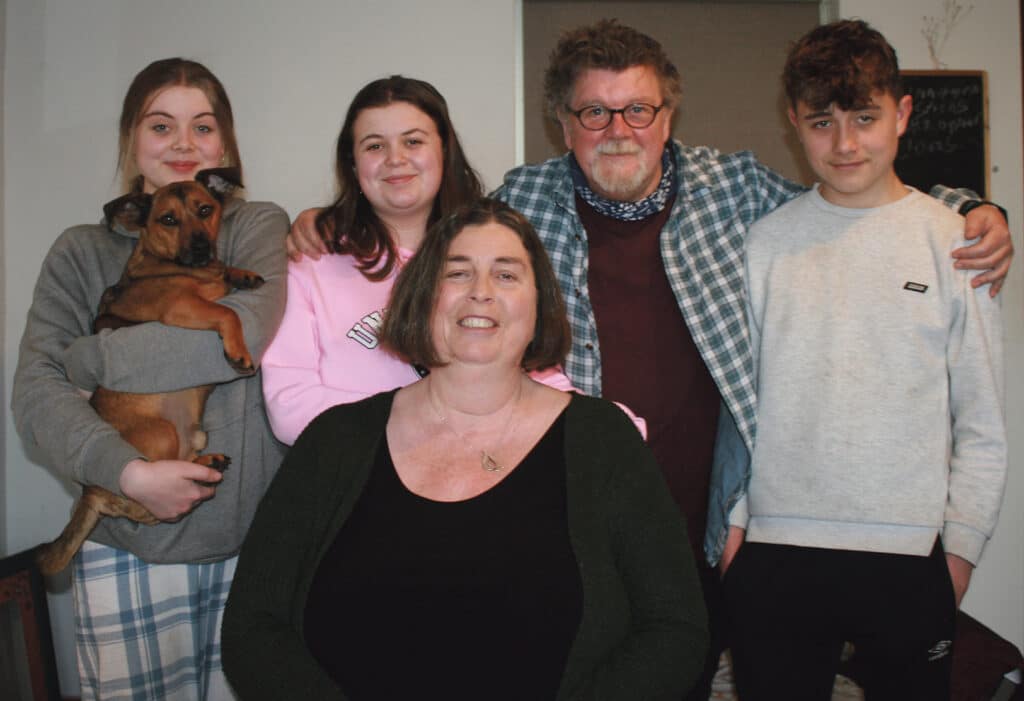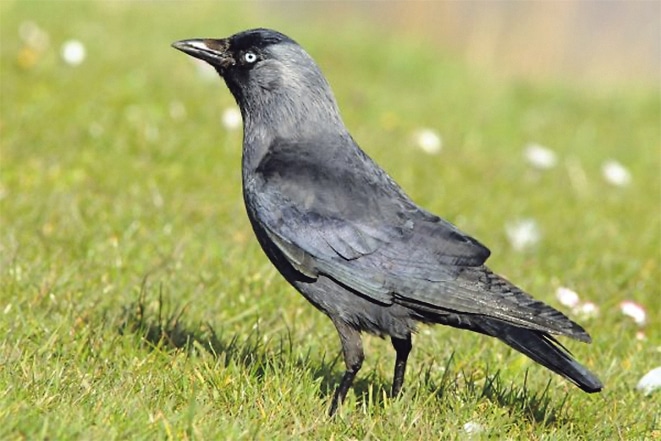It’s estimated that 19,000 people in Ireland acquire a brain injury every year with 7,500 people suffering a stroke. Acquired Brain Injuries are often described as ‘invisible’, because many of the impacts like changes in memory and concentration are often unseen. Currently there are 120,000 people in Ireland living with a disability after brain injury. Nessa Brosnan is one of them. A secondary school teacher married to musician Eugene Brosnan and mother to three children, Hannah 17, Eábha 15, and Jack 13, Nessa lives just outside Clonakilty. In 2020, a routine eye test led her to being diagnosed with a brain tumour. She suffered two strokes after being operated on and was put into a medically-induced coma to protect her brain from swelling. Against all the odds however Nessa did wake up, responding to her family and the words and music they played to her. Nessa and Eugene talk to Mary O’Brien about the journey to Nessa’s remarkable recovery and the role that the organisation Acquired Brain Injury Ireland has played in helping her regain as much independence as possible.

“I shouldn’t feel lucky or positive when I look at all the things I have been robbed of,” shares Nessa. “On the other hand the person that Eugene and my sister Niamh thought would be coming home from the hospital thankfully is not the one that they got.”
The main disabilities Nessa has been left with are aphasia, a disorder that affects how you communicate, and hemianopia, which means she has lost half of her visual field in each eye. She also suffers from impaired mobility, memory loss and agnosia, a neurological disorder characterised by an inability to recognise and identify objects or persons using one or more of the senses. One of Nessa’s vocal chords froze after the stroke and while a procedure did help to restore her voice, she doesn’t have the same projection when singing as she did before. Like the rest of her family, Nessa loves music.
Her biggest loss however right now is teaching. “I loved my job and the independence it gave me. I loved my interaction with students. No two days were ever the same. I made lifelong friends among the staff members with whom I worked over the years.
“It’s had a huge impact on us. We lost a lot as a family.”
The Brosnan family’s ordeal started in the midst of the pandemic in June 2020 when Nessa was diagnosed with a tumour – the size of an egg – in her brain.
From that very first day she has managed to keep a positive outlook even though the restricted visitation policies during Covid-19 had a huge impact on her and her family.
Eugene dropped Nessa at the hospital on June 19 to have the tumour removed and didn’t see his wife again until June 30. At that stage, Nessa had suffered two strokes and been put into a medically-induced coma.
He recalls hearing on the news on June 29 that going forward a family member would be allowed into ICU for a 15 minute visit.
“At the time I was managing the boat ok with the three children. We had a great support network of family and friends around us. Honestly I was fearful going in to see her. Fearful that I’d be rattled and the boat would be upset.”
On June 30, Eugene was permitted in to see Nessa for 15 minutes and he observed the call and response technique being carried out by the nurses. This was implemented for four hours every day; 10 minutes of every hour over 24 hours. Nessa was unresponsive.
“I didn’t feel that a stranger calling Nessa’s name in her ear would ever have any effect,” shares Eugene.
Allowed only 15 minutes each day with his wife, he was determined to use this time to get through to Nessa. He contacted friends and family members and recorded messages, music harmonies and old Irish poetry, which he played to her.
“One morning I came downstairs to hear Hannah and Eábha playing a Dermot Kennedy song on the piano and singing harmonies. It was so beautiful I said we’ll record that for mom.”
Nessa started responding to Eugene and to her sister Niamh. Even though her responses were just very slight tongue movements, the family dared to hope.
However due to her low score on the Glasgow Coma Scale, which is used to describe the extent of impaired consciousness after a brain injury, the family were told there was no hope of Nessa having a meaningful recovery. A person’s GCS score can range from three (completely unresponsive) to 15 (responsive).
“At six, there’s a 50:50 chance but Nessa was scoring much lower than this,” says Eugene.
As Eugene prepared himself for Nessa’s life support being switched off, remarkably Nessa woke up.
“She saved her own life,” says Eugene. As Nessa’s sister Niamh sang the words ‘Over in Killarney many years ago my mother sang a song to me’ at her bedside, Nessa responded by mouthing the next line of the song.
Nessa had no memory of her father dying six months previously or Eugene’s brother dying two months before she was diagnosed. She didn’t know she had three children
She continued to wake up from the coma with messages from musicians like Mairéad Ní Mhaonaigh and Jerry Fehily, the drummer with Hothouse Flowers who played with Eugene’s band, aiding in her recovery. “I’ll always remember Jerry Fehily as the first man to get a smile out of her,” says Eugene.
While Nessa doesn’t remember waking up, she does feel strongly that having the presence of her children by her side could have helped in her recovery. “They were never allowed in,” she shares, “except at the very end of my time in hospital for just two visits.”
Although slow to wake up Nessa was exceptionally quick in her recuperation.
“I’ve never witnessed tiredness like it,” shares Eugene “the effort it took her to make those tongue, eye and hand movements!”
By July 17 she was considered suitable as a candidate for a tracheostomy to reduce the need for prolonged mechanical ventilatory support, another milestone in her recovery.
Five weeks after waking up on August 27, she was transferred from ICU to a general ward.
Nessa was discharged from hospital in September and admitted to the National Rehabilitation Hospital in Dún Laoghaire in December. She was there until mid-February 2021.
Afterwards Nessa was assigned a rehabilitation assistant from Acquired Brain Injury Ireland, Glen Galvin, who worked with her for the next year teaching her how to use assistive technology. All of Nessa’s meetings with Glen were conducted in her own home, which for someone in her position made it possible to accept the support and benefit from it.
Established in 2000, Acquired Brain Injury Ireland is an internationally accredited provider of community-based neuro-rehabilitation services for people with an acquired brain injury and their families. The organisation supports 1,100 brain injury survivors every year.
“They were very supportive,” shares Nessa. “On my phone now I just need to click and a voice will read out long texts to me; the same with newspaper articles. Alex also looked at memory aids with me and tasks to assist with concentration and so on.”
Although her future path is still somewhat uncertain – she isn’t teaching at the moment due to the aphasia and hemianopia – Nessa remains positive. “I learnt that I don’t always know what’s wrong or what can be helped or strengthened so to give everything a go,” she says.
Nessa has started going to some of Eugene’s music gigs again and at home the family still enjoy playing music together. “Nessa’s a great percussionist,” says Eugene. “Give me a shaker and I’ll shake it,” she laughs.
Nessa is now dealing with getting back to driving, which will give her greater independence and support her in living a fuller life.
“I know I’m not a housekeeper that’s for sure,” she laughs. “I would hate to think that I’ll still be fighting over a dirty floor in two years time!”







